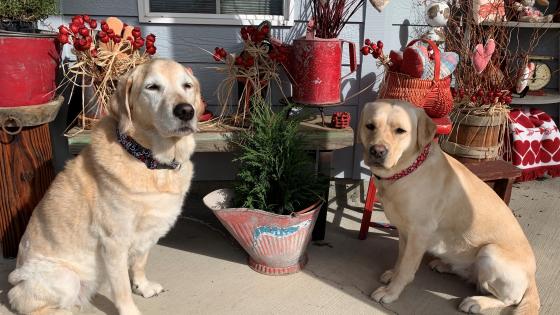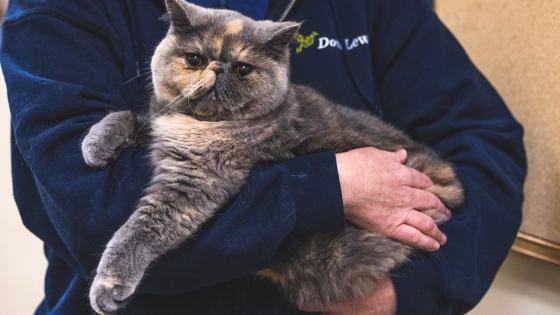
Protect Your Pets From the Hazards of Wildfire Smoke
Poor air quality affects pets just as it does humans. While many parts of Oregon experience poor air quality due to wildfires, keep your pet’s health in mind with these tips from DoveLewis veternarians.
- Keep pets indoors with the windows closed.
- Use air conditioning, if possible, to further filter the air.
- Outdoor bathroom breaks should be kept short.
- Avoid prolonged exercise.
- Keep pets well hydrated.
- Look for signs of respiratory stress and eye inflammation (see below). If your pet shows symptoms, see a veterinarian immediately.
- Urban farm animals (goats, chickens, etc.) are less of a concern since they’re already used to dusty conditions. Monitor them for abnormal behavior or symptoms of illness. Be sure to keep them sheltered from heat.
- If you live close to the fires and it’s smoky inside your home, consider keeping your pet at a doggy day care or with a trusted friend away from the area.
Certain pets are more susceptible to respiratory distress:
- Pets with asthma or bronchitis
- Dogs with rounder faces and shorter noses (bulldogs, Boston terriers, etc.)
- Puppies and older dogs
Signs of respiratory distress:
- Difficulty breathing
- Unusual or excessive coughing, sneezing, vomiting or loss of appetite
- Swelling or inflammation of the mouth, eyes, skin or upper airway
- Open-mouthed breathing, especially in cats
- Weakness/lethargy
- Uncoordinated walking/unable to stand
- Increased salivation
Smoke inhalation can also cause:
- Disorientation/confusion
- Fainting
- Sleepiness
- Seizures
If your pet is experiencing any of these symptoms, especially breathing troubles, see your veterinarian or visit DoveLewis immediately.




